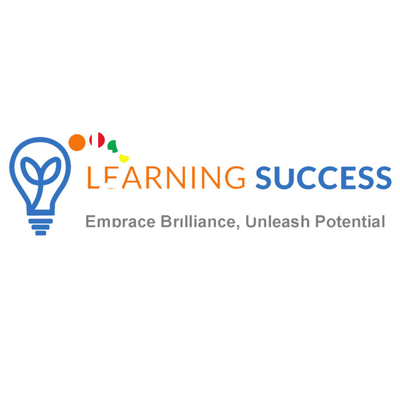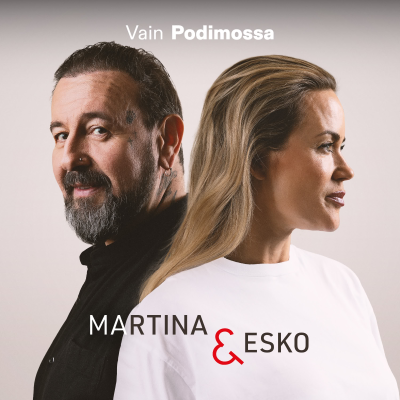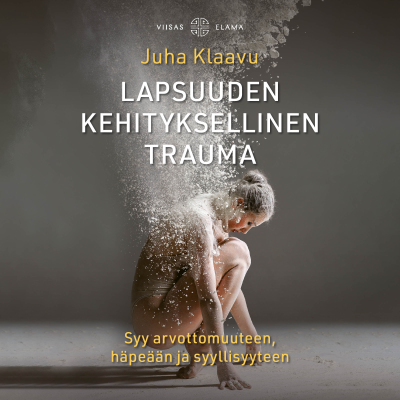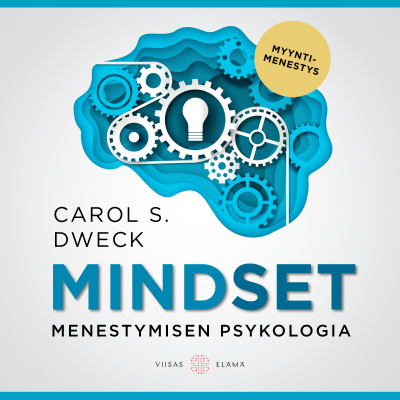
Learning Success
englanti
Teknologia & tieteet
Rajoitettu tarjous
2 kuukautta hintaan 1 €
Sitten 7,99 € / kuukausiPeru milloin tahansa.
- Podimon podcastit
- Lataa offline-käyttöön
Lisää Learning Success
A podcast by Learning Success Helping You Embrace Your Child's Brilliance To Unleash Their Potential The Learning Success podcast brings you the latest news, tips, and techniques for overcoming a learning disability. Especially for those suffering from Dyslexia, Dyscalculia, Dysgraphia, or ADHD. Or those who just have difficulty in math, reading, writing, or spelling. Join us to learn the latest in overcoming weaknesses associated with these conditions as well as enhancing strengths. How you deal with a learning difficulty has a huge effect on your overall life.
Kaikki jaksot
56 jaksotBiggest Dyslexia News in 23 Years
Start a free trial of the Learning Success System and get your child's free analysis and 12 week action plan https://learningsuccess.ai/membership/all-access/ [https://learningsuccess.ai/membership/all-access/]If you’ve ever watched your child struggle to read and felt helpless, frustrated, or angry at a system that keeps telling you to “wait,” this episode is for you. The International Dyslexia Association (IDA) has released a new definition of dyslexia—and it finally validates what parents have known all along: waiting for children to fail causes real harm. Lowered expectations damage confidence. And struggling readers deserve support early, not excuses later. This new definition changes everything. In this episode, I break down what the IDA’s update really means for your child—and for you as a parent who’s been fighting for answers, support, and hope. We talk about why schools so often delay help, how that delay affects a child’s self-belief, and why your child’s brain is not broken—it’s changeable. Through the power of neuroplasticity, your child can build real reading skills, focus, confidence, and a love of learning. And you don’t have to wait for permission to start. You’ll also hear how Learning Success AI’s All Access Program was designed for families exactly like yours—parents who refuse to accept “they’ll grow out of it” or “this is the best we can do.” 💛 In this episode, you’ll discover: * Why “wait to fail” is finally being called out—and what replaces it * How early intervention can change the trajectory of your child’s life * Why your child’s struggles are not a reflection of intelligence or effort * How to end nightly homework battles and rebuild motivation * What it looks like when learning finally starts to click * Why YOU are the most important advocate your child will ever have 🌱 Try Learning Success AI FREE for 7 days * An AI-powered assessment that reveals how your child learns * A personalized learning blueprint you keep forever—even if you cancel * Daily, doable activities that build skills without overwhelm * Parent coaching, school advocacy tools, and a community that truly understands For less than the cost of ongoing specialist visits, you can stop feeling powerless and start building your child’s learning brain—today. ✨ The revolution in learning is here. And it starts with you. Start your free trial now: https://LearningSuccess.ai [https://LearningSuccess.ai] Subscribe for more honest conversations about dyslexia, learning struggles, parenting, confidence, and turning challenges into lifelong capabilities.
How do I set boundaries and manage my child's behavior while still being emotionally supportive, and what actually works for long-term behavior change?
Episode 11: Behavior Management with Emotional Intelligence How do I set boundaries and manage my child's behavior while still being emotionally supportive, and what actually works for long-term behavior change? In this final episode of our comprehensive series, we tackle the biggest challenge parents face: balancing emotional understanding with effective discipline. Discover how to integrate everything you've learned about emotional intelligence with science-based behavior management that actually works for lasting change. What You'll Learn: * Why traditional punishment-based approaches often backfire and make problems worse * The science of reinforcement and how children actually learn from consequences * How to redesign your household so children earn privileges rather than lose them * Why giving in to tantrums or getting angry both inadvertently reinforce problem behaviors * How to be the "CEO of your household" with calm confidence instead of reactive control * The crucial difference between acknowledging emotions and enabling inappropriate behavior Breakthrough Behavior Strategies: * Earning vs. Losing Systems: Why children should always be working toward privileges rather than having them revoked * Avoiding Reinforcement Traps: How attention (even negative attention) can strengthen unwanted behaviors * Consistent Follow-Through: Why consequences must be sustainable and enforceable * The Power of Ignoring: When not responding is the most effective intervention Real-World Applications: * What to do when your child whines to get out of chores or homework * How to handle tantrums without reinforcing them * Setting up earning schedules that motivate rather than frustrate * Responding to disrespectful behavior while maintaining emotional connection * Creating household systems that naturally encourage cooperation Integration with Emotional Intelligence: * How to validate feelings while maintaining behavioral expectations * Using emotional awareness to understand the "why" behind behavior without excusing it * Teaching children that emotions are information, not excuses for inappropriate actions * Helping children learn that feelings are always acceptable, behaviors are not always acceptable Key Scientific Insights: * How reinforcement creates permanent neural pathways in the brain * Why punishment often leads to sneaking, lying, and avoidance rather than genuine behavior change * The symbiotic relationship between parent behavior and child behavior * How consequences actually shape habits and character over time Avoiding Common Pitfalls: * Why inconsistent consequences undermine all your efforts * How to avoid consequences you can't actually enforce * The problems with threats, bribes, and emotional manipulation * Why "punishment parenting" often creates adversarial relationships Building Strong Family Systems: * Creating clear expectations and earning opportunities * Teaching children to work for what they want rather than expecting everything for free * Developing internal motivation rather than external compliance * Building character through accountability and responsibility This episode completes your transformation from reactive parenting to intentional, science-based family leadership that honors emotions while building strong character. This final episode completes our comprehensive series based on hundreds of hours of research and expert interviews. Also available as a complete course at learningsuccess.ai and as a video documentary on Amazon Prime. Get the Free Learning Success Emotional Intelligence Course https://learningsuccess.ai/course/documentary-overly-emotional-child/ [https://learningsuccess.ai/course/documentary-overly-emotional-child/] Watch The Overly Emotional Child on Amazon Prime https://www.amazon.com/Overly-Emotional-Child-Liz-Weaver/dp/B08M3C8P6B [https://www.amazon.com/Overly-Emotional-Child-Liz-Weaver/dp/B08M3C8P6B]
Why does my child seem to have such extreme difficulty with emotional regulation despite all my efforts?
Episode 10: Understanding Emotional Dysregulation Why does my child seem to have such extreme difficulty with emotional regulation despite all my efforts, and could there be an underlying neurological or sensory processing issue? If you've been consistently implementing emotional intelligence strategies but your child still struggles significantly more than others with regulation, this episode provides crucial insights you need. Discover when emotional challenges may be rooted in underlying neurological differences that require specialized understanding and support. In this essential episode, we explore the difference between typical emotional development and actual regulation disorders that stem from sensory processing differences. What You'll Learn: * The difference between emotional learning challenges and actual regulation disorders * How the brainstem processes sensory information and determines "safe vs. unsafe" * Two types of regulation disorders: modulation disorders and self-regulation disorders * Why some children appear hyperactive while others seem anxious or withdrawn * How processing breakdowns in the brainstem create emotional storms * The role of brain plasticity in developing better regulation skills Key Concepts Covered: * Modulation Disorders: When children are unable to become regulated (processing breakdown in lower brainstem) * Self-Regulation Disorders: When children can become regulated but struggle to stay regulated (processing breakdown in upper brainstem) * How the nervous system's "safety detection" system can malfunction * Why some children need sensory input while others become overwhelmed by it Understanding Different Presentations: * The "tornado" child: hyperactive, seeking stimulation, then crashing into sluggishness * The anxious child: hiding, resisting, limiting input, then becoming aggressive when overwhelmed * Children who flip between these states unpredictably * How both presentations stem from the same underlying processing challenges Hope Through Science: * Brain plasticity: how all brains can change and grow throughout life * Bottom-up approaches that focus on brainstem rewiring rather than just behavior modification * How sensory programs can carve new neural pathways for better regulation * Why understanding the neurological basis leads to more effective interventions For Parents: * When to seek professional evaluation for sensory processing differences * How to distinguish between willful behavior and neurological overwhelm * Why traditional discipline approaches may not work for children with regulation disorders * How to advocate for your child's unique nervous system needs * Finding hope when conventional parenting strategies aren't effective Practical Applications: * Recognizing signs that your child may have underlying processing differences * Understanding why your child might need different approaches than their siblings * How to support a child whose brainstem struggles with safety detection * Creating environments that support rather than overwhelm sensitive nervous systems Key Takeaways: * Regulation difficulties are neurological differences, not character flaws or parenting failures * Understanding the "why" behind struggles leads to more effective support * Brain plasticity means improvement is always possible with the right approaches * Some children need specialized support to develop skills that come naturally to others * Bottom-up interventions can be more effective than top-down behavioral strategies alone Based on hundreds of hours of research and expert interviews. Also available as a complete course at learningsuccess.ai and as a video documentary on Amazon Prime. Get the Free Learning Success [https://learningsuccess.ai/] Emotional Intelligence Course https://learningsuccess.ai/course/documentary-overly-emotional-child/ [https://learningsuccess.ai/course/documentary-overly-emotional-child/] Watch The Overly Emotional Child on Amazon Prime https://www.amazon.com/Overly-Emotional-Child-Liz-Weaver/dp/B08M3C8P6B [https://www.amazon.com/Overly-Emotional-Child-Liz-Weaver/dp/B08M3C8P6B]
What does emotional intelligence look like in real family life?
Episode 9: Building Emotional Intelligence How do I know if what I'm doing is actually working, and what does emotional intelligence look like in real family life? If you've been implementing the strategies from this series and wondering whether you're on the right track, this episode will give you the confidence and clarity you need. Discover what true emotional intelligence looks like when it all comes together, and learn to recognize progress even when it doesn't match your expectations. In this inspiring culmination episode, we bring together all the principles from our series and show you the beautiful transformation that happens when children develop genuine emotional intelligence. You'll hear real success stories and learn what to look for as your child grows in emotional maturity. What You'll Learn: * How to recognize when your child is developing emotional independence * The difference between supporting your child and solving their problems for them * What it looks like when children feel truly "seen" and "heard" * How to give children space to work through emotions while remaining available * Signs that your emotional intelligence work is paying off * The beautiful balance between guidance and independence Real Transformation Stories: * Children learning to work through emotions independently * Parents stepping back and trusting their child's emotional processing abilities * How providing "safe space" leads to better outcomes than immediate problem-solving * Examples of children developing confidence in their own emotional regulation skills The TLC Framework in Action: * Meeting children on Their home turf through age-appropriate communication * Lowering defenses by approaching with creativity rather than confrontation * Creating genuine Connection that builds emotional intelligence over time Key Signs of Progress: * Your child asks for space when they need it rather than shutting down * They can identify and name their emotions more easily * They show increased confidence in handling difficult situations * They seek support when needed but try to work through problems first * Their emotional outbursts become less frequent and intense over time What Emotional Intelligence Looks Like: * Children who feel safe expressing all emotions appropriately * Kids who can self-soothe and problem-solve independently * Families where difficult emotions are met with understanding rather than fear * Children who trust their own ability to handle life's challenges * Parents who can stay calm and supportive without taking over For Parents: * How to trust the process when your child is still struggling * Recognizing that emotional growth isn't always linear * Understanding when to step in versus when to step back * Celebrating small wins and gradual progress * Building your own confidence as an emotionally intelligent parent Key Takeaways: * Emotional intelligence isn't about eliminating difficult emotions - it's about building skills to handle them * Children develop confidence through working through challenges, not avoiding them * Your role shifts from problem-solver to supportive guide * Real success looks like children who trust their own emotional abilities * Every interaction is an opportunity to build emotional intelligence This episode celebrates how far you've come while giving you practical ways to recognize and nurture continued emotional growth in your family. Perfect for: Parents wanting to assess their progress, anyone needing encouragement about their emotional intelligence journey, or those ready to see the bigger picture of raising emotionally capable children. Based on hundreds of hours of research and expert interviews. Also available as a complete course at learningsuccess.ai and as a video documentary on Amazon Prime. Get the Free Learning Success [https://learningsuccess.ai/] Emotional Intelligence Course https://learningsuccess.ai/course/documentary-overly-emotional-child/ [https://learningsuccess.ai/course/documentary-overly-emotional-child/] Watch The Overly Emotional Child on Amazon Prime https://www.amazon.com/Overly-Emotional-Child-Liz-Weaver/dp/B08M3C8P6B [https://www.amazon.com/Overly-Emotional-Child-Liz-Weaver/dp/B08M3C8P6B]
What can I do when my child shuts down or can't talk about their emotions, and how do I connect with them when words aren't working?
Episode 8 : Externalizing Emotions What can I do when my child shuts down or can't talk about their emotions, and how do I connect with them when words aren't working? If you've ever felt stuck when your child refuses to talk about their feelings, shuts down emotionally, or seems too overwhelmed for words, this episode will open up entirely new possibilities for connection and healing. Discover powerful alternatives to verbal communication that can reach your child when traditional talking approaches fail. In this innovative episode, we explore why sometimes the most healing thing you can do is stop talking altogether and try something completely different. You'll learn how creative expression, visual cues, and non-verbal communication can help your child process emotions in ways that words alone cannot achieve. What You'll Learn: * Why verbal communication becomes nearly impossible when children are emotionally overwhelmed * How sensory systems (rhythm, movement, visual cues) stay online even when words fail * The power of creative expression to help children externalize their emotions * How drawing and art allow children to see their feelings from a safe distance * Why creative approaches help thinking brain integrate with feeling brain * The "TLC" method: Their home turf, Lowering defenses, Connection through creativity Breakthrough Techniques: * Using drawings as "mediators" between you and your child * Simple visual communication (sad faces, speech bubbles) that bypasses verbal barriers * How art materials can become tools for emotional expression * Creating safe spaces for non-verbal emotional processing * Helping children understand their internal world through external expression Real-World Applications: * What to do when your child says "I don't want to talk" or "go away" * How to approach a child who's locked themselves in their room * Using creative activities during calm moments to build emotional processing skills * Meeting children where they are instead of forcing adult communication styles * Recognizing when to step back from verbal approaches Key Insights: * Children's verbal skills go offline during emotional stress, but creativity remains accessible * Meeting children "on their home turf" feels less threatening than adult-focused talking * Creative expression allows emotions to become visible and manageable * Sometimes connection happens through doing rather than discussing * Non-verbal approaches can be more effective than words for many children Why This Works: * Removes the pressure and defensiveness that "we need to talk" creates * Allows children to communicate at their own pace and comfort level * Helps overwhelmed children organize chaotic emotional experiences * Creates opportunities for connection without forcing vulnerability * Builds bridge between emotional brain and thinking brain Key Takeaways: * Sometimes the most powerful parenting tool is putting down words and picking up crayons * Creative approaches work for all children, not just "artistic" ones * Non-verbal connection can be just as healing as verbal processing * Children often communicate more honestly through creative expression * These techniques work especially well with children who feel "too big" emotions for words This episode transforms how you think about emotional communication and gives you practical tools for reaching your child when traditional approaches aren't working. Perfect for: Parents of children who shut down emotionally, anyone whose child resists talking about feelings, or those wanting creative alternatives to verbal processing. Based on hundreds of hours of research and expert interviews. Also available as a complete course at learningsuccess.ai and as a video documentary on Amazon Prime. Get the Free Learning Success [https://learningsuccess.ai/] Emotional Intelligence Course https://learningsuccess.ai/course/documentary-overly-emotional-child/ [https://learningsuccess.ai/course/documentary-overly-emotional-child/] Watch The Overly Emotional Child on Amazon Prime https://www.amazon.com/Overly-Emotional-Child-Liz-Weaver/dp/B08M3C8P6B [https://www.amazon.com/Overly-Emotional-Child-Liz-Weaver/dp/B08M3C8P6B]
Valitse tilauksesi
Rajoitettu tarjous
Premium
Podimon podcastit
Lataa offline-käyttöön
Peru milloin tahansa
2 kuukautta hintaan 1 €
Sitten 7,99 € / kuukausi
Premium
20 tuntia äänikirjoja
Podimon podcastit
Lataa offline-käyttöön
Peru milloin tahansa
30 vrk ilmainen kokeilu
Sitten 9,99 € / kuukausi
Premium
100 tuntia äänikirjoja
Podimon podcastit
Lataa offline-käyttöön
Peru milloin tahansa
30 vrk ilmainen kokeilu
Sitten 19,99 € / kuukausi
2 kuukautta hintaan 1 €. Sitten 7,99 € / kuukausi. Peru milloin tahansa.















































